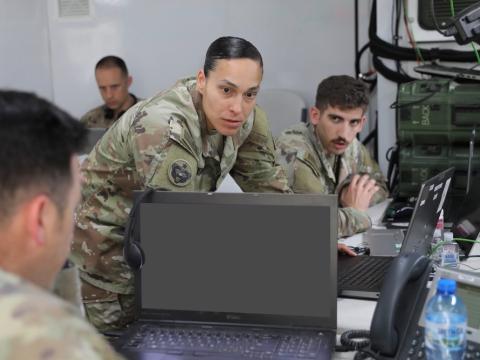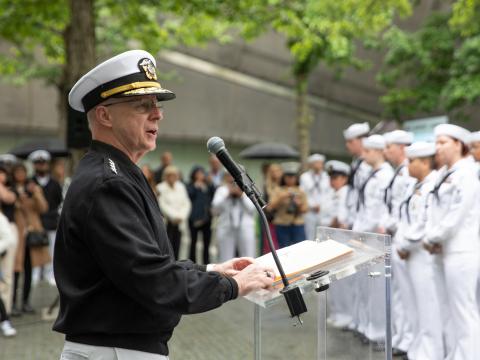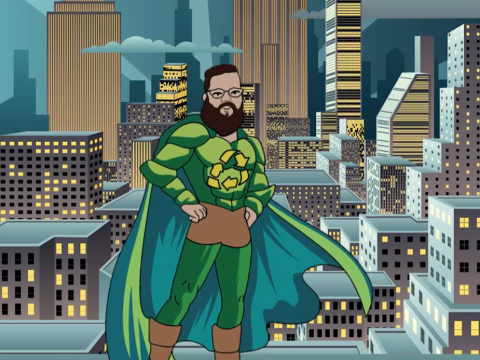No Matter the Name, It's No Longer the Same
Tuesday's early afternoon panelists agreed that the term "hybrid" may go away, but conflicts with multiple types of combatants are likely to go on long into the future. After a stimulating speech from Gen. Martin E. Dempsey, USA, the TRADOC commanding general, at the Joint Warfighting Conference luncheon today, experts with a variety of backgrounds discussed hybrid warfare and the implications for future joint force commanders.
Tuesday's early afternoon panelists agreed that the term "hybrid" may go away, but conflicts with multiple types of combatants are likely to go on long into the future. After a stimulating speech from Gen. Martin E. Dempsey, USA, the TRADOC commanding general, at the Joint Warfighting Conference luncheon today, experts with a variety of backgrounds discussed hybrid warfare and the implications for future joint force commanders.
Panel moderator Lt. Col. Frank G. Hoffman, USMCR (Ret.), Foreign Policy Research Institute research fellow, Marine Corps Combat Development Command, led off the discussion by stating that the focus for warfare in the 21st century must be broader spectrum as well as a convergence of different types of war. These must be dealt with simultaneously, he stated. Although this is not a novel concept, it is "one we have not been prepared for institutionally or militarily," the colonel said. Col. Hoffmann agreed with Gen. Dempsey that versatility is key; however, mental agility and a warrior ethos also are needed.
Vice Adm. Robert S. Harward Jr., USN, deputy commander, JFCOM, pointed out that the hybrid war we are fighting today had a long lead time. Recent examples include terrorists hijacking commercial airplanes and forcing them to fly to specific destinations in the 1970s. Since that time, hybrid warfare has evolved to include not only state-nonstate entities but also individuals, criminals and the disenfranchised, all of whom must be considered in operations.
The small, highly skilled military units Gen. Mattis spoke about during his speech this morning will be one way to address this multifaceted adversary, Adm. Harward said. In addition, the admiral stressed that the U.S. and its allies must get inside the adversaries' networks at a much faster pace than the speed of war.
From his 2007 and 2008 experience in Afghanistan, panelist Maj. Gen Herman van der Til, Royal Netherlands Marine Corps, shared eight observations about hybrid warfare and coalitions. Among the top requirements for success are a unity of command, a unity of effort and the proper balance between force protection and increased vulnerability, which is the result of a need to interact with local citizens. In this list, Gen. van der Til also included winning the hearts and minds of both the citizens in the battlespace as well as those at home and accepting that the media is a powerful tool-and will always win-when fighting wars today and in the future.
Panelists agreed that the new mission command concept must more closely resemble that of the enemy's-decentralized units working toward a common end. To ensure that this can occur, joint force commanders will have to focus on purely defined goals; these goals, however, may require reassessment, mission change and agility.
The revolution this brings to industry is in the form of new requirements. Communications technologies will have to enable decentralized communications rather than feed information only to the joint force commander.




Comments